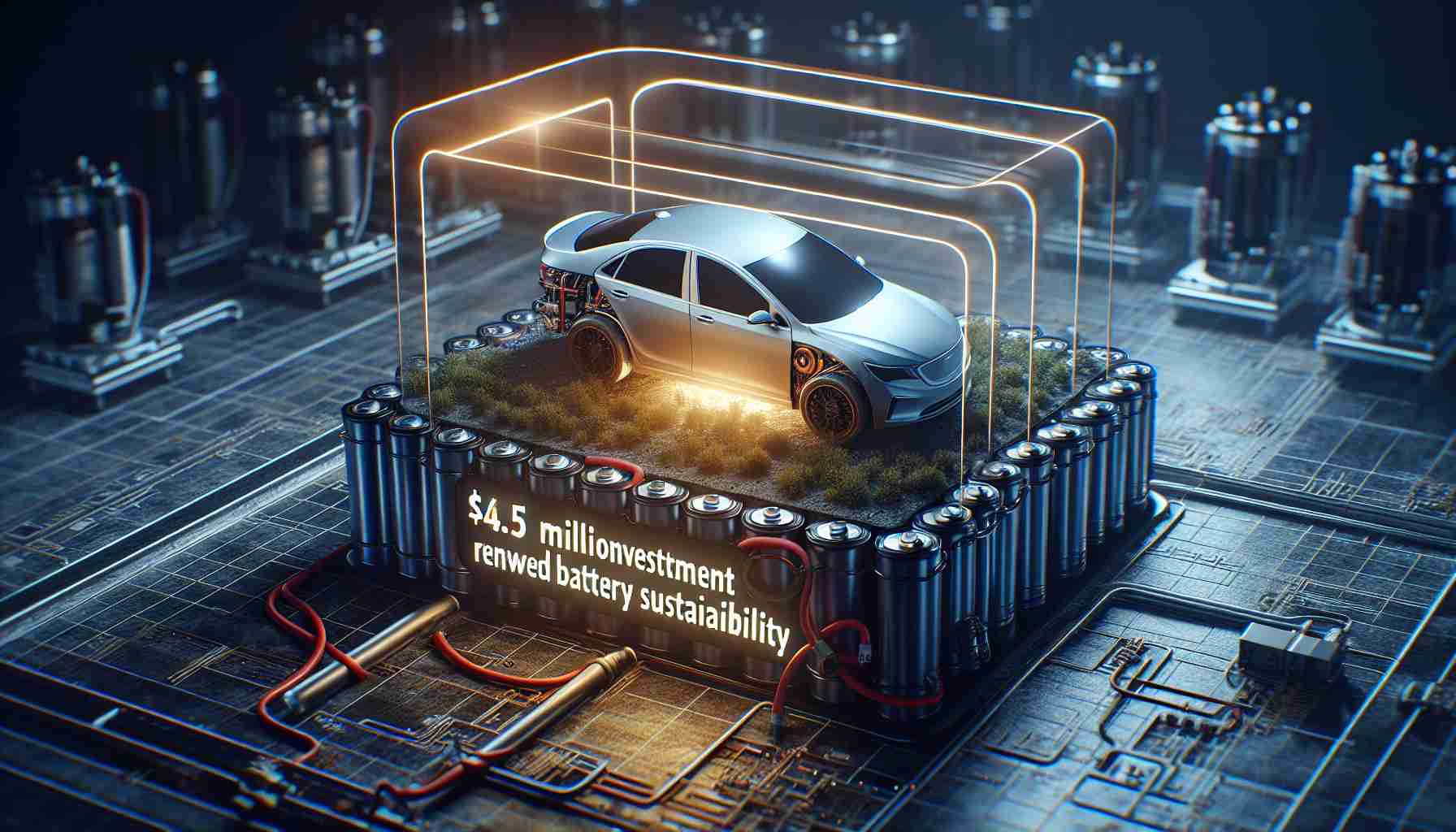- The Department of Energy has granted Toyota $4.5 million for an EV battery sustainability initiative.
- Toyota aims to address environmental concerns associated with lithium-ion batteries, including pollution and electronic waste.
- The project focuses on extending battery life and improving recycling efforts through rigorous evaluation of battery components.
- Collaboration with leading research institutions like Oak Ridge National Laboratory enhances the development of innovative recycling technologies.
- By reducing emissions per mile, this initiative supports the transition to a greener future in the electric vehicle sector.
- Continued advancements in EV technology are essential for promoting sustainable industrial practices and protecting the environment.
In a groundbreaking move for electric vehicle (EV) technology, the Department of Energy has awarded Toyota a hefty $4.5 million to kickstart its innovative EV battery sustainability project. With increasing scrutiny on lithium-ion batteries—known for becoming harmful electronic waste and contributing to pollution when discarded—Toyota is on a mission to change the narrative.
While freeing the roads from gas-powered cars is vital for our planet, the environmental concerns linked to lithium mining and battery disposal have raised valid worries. Extracting lithium often involves draining water and utilizing corrosive chemicals, exacerbating environmental challenges.
However, hope is on the horizon. Toyota’s project aims to tackle these issues by revolutionizing battery management. They plan to meticulously evaluate each battery component with the ambition to prolong battery life and redirect waste toward recycling. This initiative marks a crucial step towards sustainable industrial practices.
Toyota is not alone in this endeavor; partnerships with renowned research institutions like the Oak Ridge National Laboratory and the National Renewable Energy Laboratory will enhance their efforts. Together, they are developing cutting-edge technology that accelerates the recycling process, making sustainability more attainable.
By significantly extending battery life, the emissions per mile diminish, paving the way for a greener future. As advancements in the EV sector flourish, each step moves us closer to a cleaner planet. Stay informed and discover how you can contribute to this exciting transformation!
Revolutionizing EV Sustainability: A Green Future Ahead!
Overview of Toyota’s Innovative EV Battery Sustainability Project
In a significant stride towards sustainable electric vehicle (EV) technology, the U.S. Department of Energy has awarded Toyota a $4.5 million grant to innovate its EV battery sustainability project. This funding is directed towards addressing the pressing environmental concerns surrounding lithium-ion batteries, which are often linked to pollution and harmful electronic waste.
Current Context of Lithium-Ion Batteries
Lithium-ion batteries, the backbone of modern electric vehicles, face scrutiny due to their environmental impact during production and disposal. Lithium extraction involves draining aquifers and using hazardous chemicals, leading to significant ecological concerns. Thus, changing the lifecycle management of these batteries is imperative.
Key Innovations and Techniques
Toyota’s initiative aims to revolutionize battery management through advanced techniques that:
– Prolong Battery Life: By understanding and optimizing each component, the lifespan of batteries can be extended, which in turn reduces the frequency of battery replacement and waste generation.
– Enhance Recycling Processes: Collaborating with research giants like the Oak Ridge National Laboratory and the National Renewable Energy Laboratory, Toyota aims to streamline recycling processes, making it easier to recover valuable materials from used batteries.
Trends and Insights in the EV Battery Market
The EV battery market is poised for substantial growth, with a focus on sustainability and efficiency. Analysts predict that the demand for green technologies will rise, propelling further innovations in battery recycling and life-cycle management. According to market forecasts, the global battery recycling market could exceed $20 billion by 2030.
Pros and Cons of Current EV Battery Technologies
# Pros:
– Reduced Carbon Footprint: Electric vehicles can help decrease greenhouse gas emissions when powered by renewable energy.
– Resource Recovery: Advances in recycling can recover important materials, reducing the need for raw material extraction.
# Cons:
– Environmental Concerns: Lithium mining is resource-intensive and impacts local ecosystems adversely.
– Processing Waste: Even with recycling improvements, the processing of batteries can generate waste and emissions.
Addressing Common Questions
1. How does Toyota plan to extend the life of EV batteries?
Toyota is focusing on meticulous evaluation of battery components to identify and implement methods that can enhance performance and durability, thereby prolonging battery life significantly.
2. What partnerships is Toyota involved in to promote battery sustainability?
Toyota is collaborating with leading research organizations such as the Oak Ridge National Laboratory and the National Renewable Energy Laboratory to develop new technologies for battery recycling and sustainability.
3. Why is battery recycling important for the future of electric vehicles?
Recycling minimizes the environmental impact of battery production, reduces the need for new raw materials, and ensures that valuable materials are recovered and reused, all crucial for a sustainable EV ecosystem.
Conclusion: A Sustainable Future
With initiatives like Toyota’s EV battery sustainability project, the automotive industry is on the brink of a transformative shift towards greener practices. The collaboration and innovation showcased in this endeavor are critical as we move towards a more sustainable electric future.
For more detailed insights, visit Toyota.



















